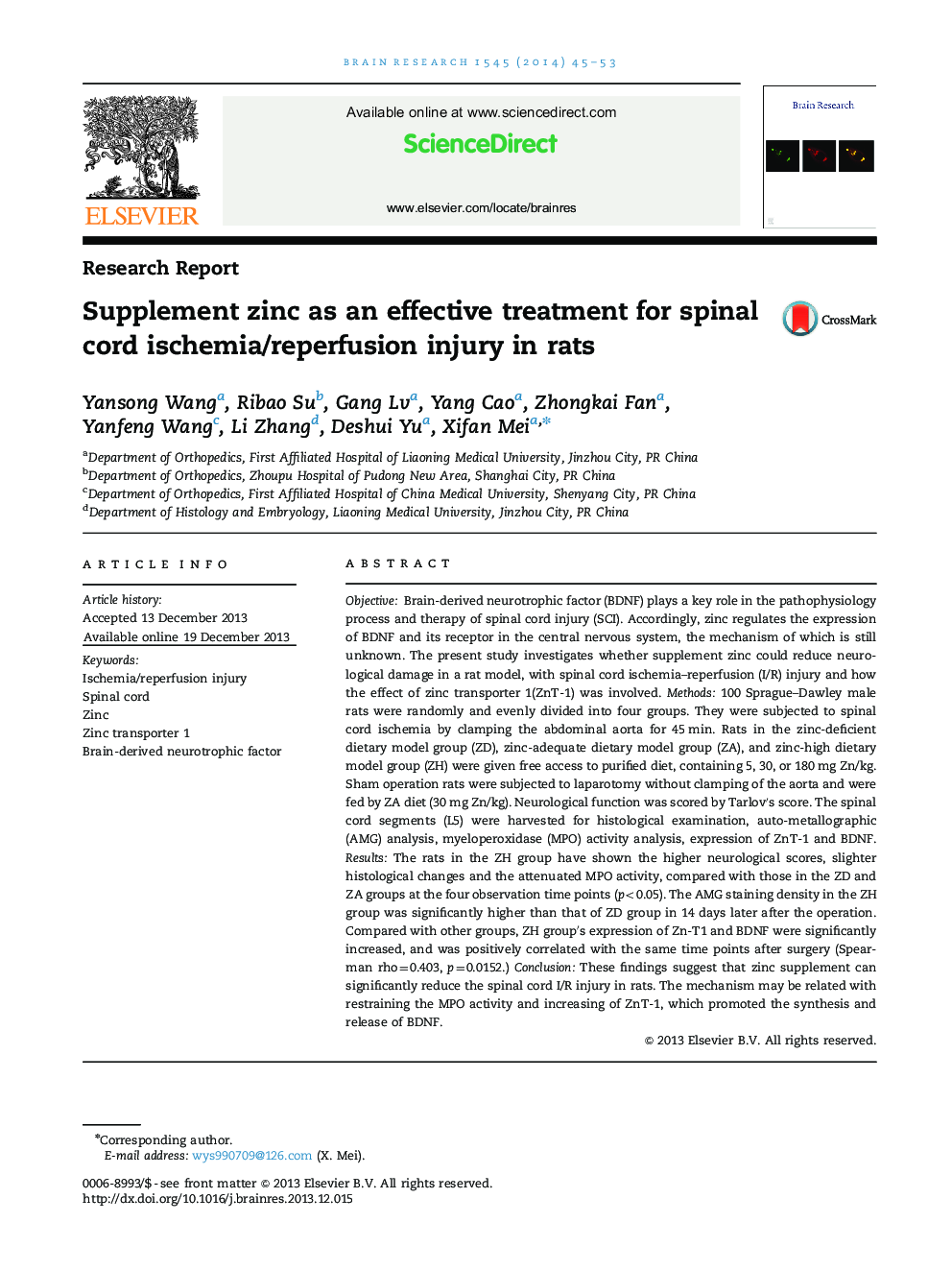| Article ID | Journal | Published Year | Pages | File Type |
|---|---|---|---|---|
| 4324497 | Brain Research | 2014 | 9 Pages |
•Zinc plays a key role in multiple metabolic and signaling pathways.•Supplement zinc prevents the increase of MPO in rat spinal cord I/R injury model.•Supplement zinc caused a significant up-regulation of BDNF protein expression.•Supplement zinc can significantly reduce the spinal cord I/R injury in rats.
ObjectiveBrain-derived neurotrophic factor (BDNF) plays a key role in the pathophysiology process and therapy of spinal cord injury (SCI). Accordingly, zinc regulates the expression of BDNF and its receptor in the central nervous system, the mechanism of which is still unknown. The present study investigates whether supplement zinc could reduce neurological damage in a rat model, with spinal cord ischemia–reperfusion (I/R) injury and how the effect of zinc transporter 1(ZnT-1) was involved. Methods: 100 Sprague–Dawley male rats were randomly and evenly divided into four groups. They were subjected to spinal cord ischemia by clamping the abdominal aorta for 45 min. Rats in the zinc-deficient dietary model group (ZD), zinc-adequate dietary model group (ZA), and zinc-high dietary model group (ZH) were given free access to purified diet, containing 5, 30, or 180 mg Zn/kg. Sham operation rats were subjected to laparotomy without clamping of the aorta and were fed by ZA diet (30 mg Zn/kg). Neurological function was scored by Tarlov's score. The spinal cord segments (L5) were harvested for histological examination, auto-metallographic (AMG) analysis, myeloperoxidase (MPO) activity analysis, expression of ZnT-1 and BDNF. Results: The rats in the ZH group have shown the higher neurological scores, slighter histological changes and the attenuated MPO activity, compared with those in the ZD and ZA groups at the four observation time points (p<0.05). The AMG staining density in the ZH group was significantly higher than that of ZD group in 14 days later after the operation. Compared with other groups, ZH group's expression of Zn-T1 and BDNF were significantly increased, and was positively correlated with the same time points after surgery (Spearman rho=0.403, p=0.0152.) Conclusion: These findings suggest that zinc supplement can significantly reduce the spinal cord I/R injury in rats. The mechanism may be related with restraining the MPO activity and increasing of ZnT-1, which promoted the synthesis and release of BDNF.
